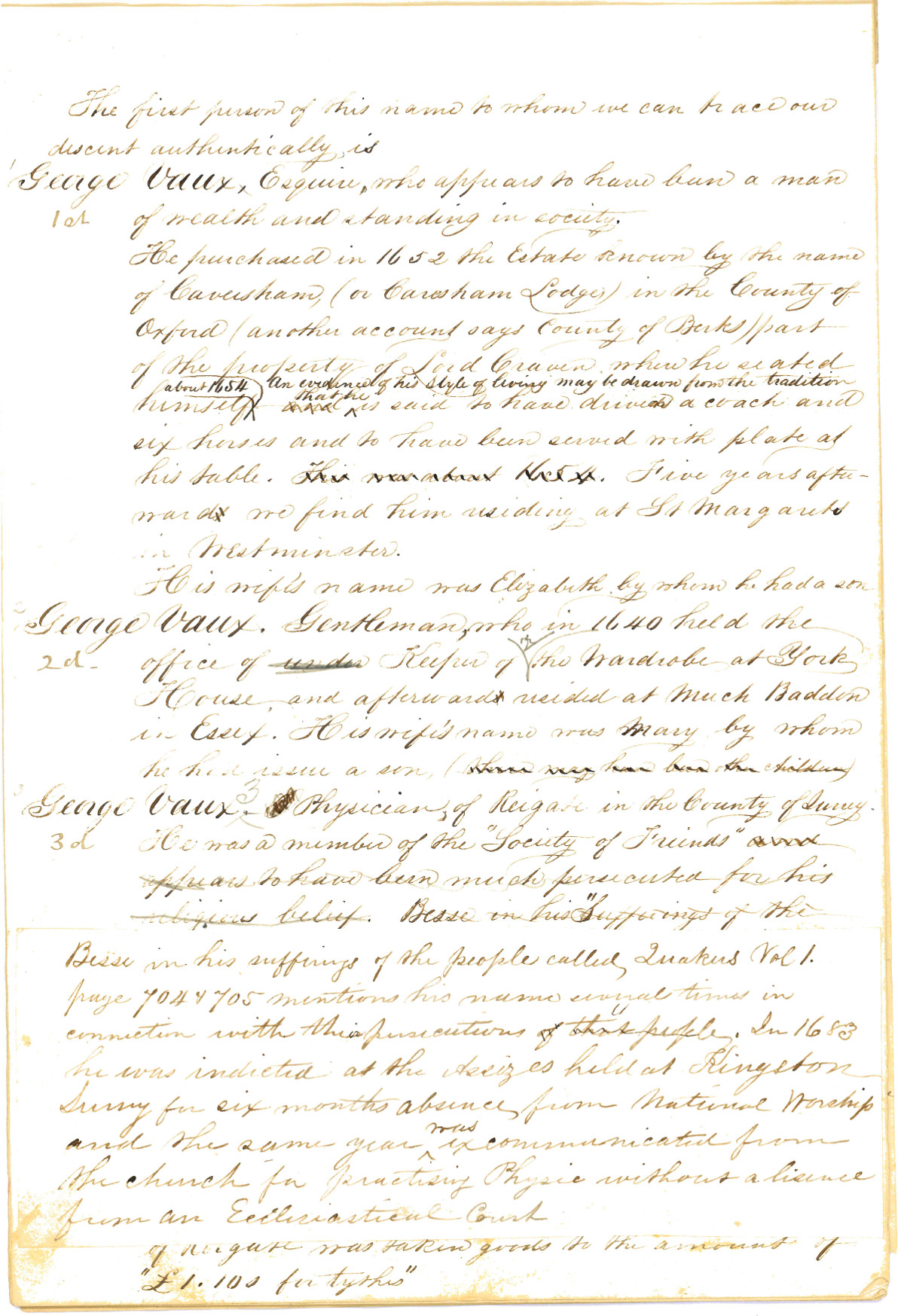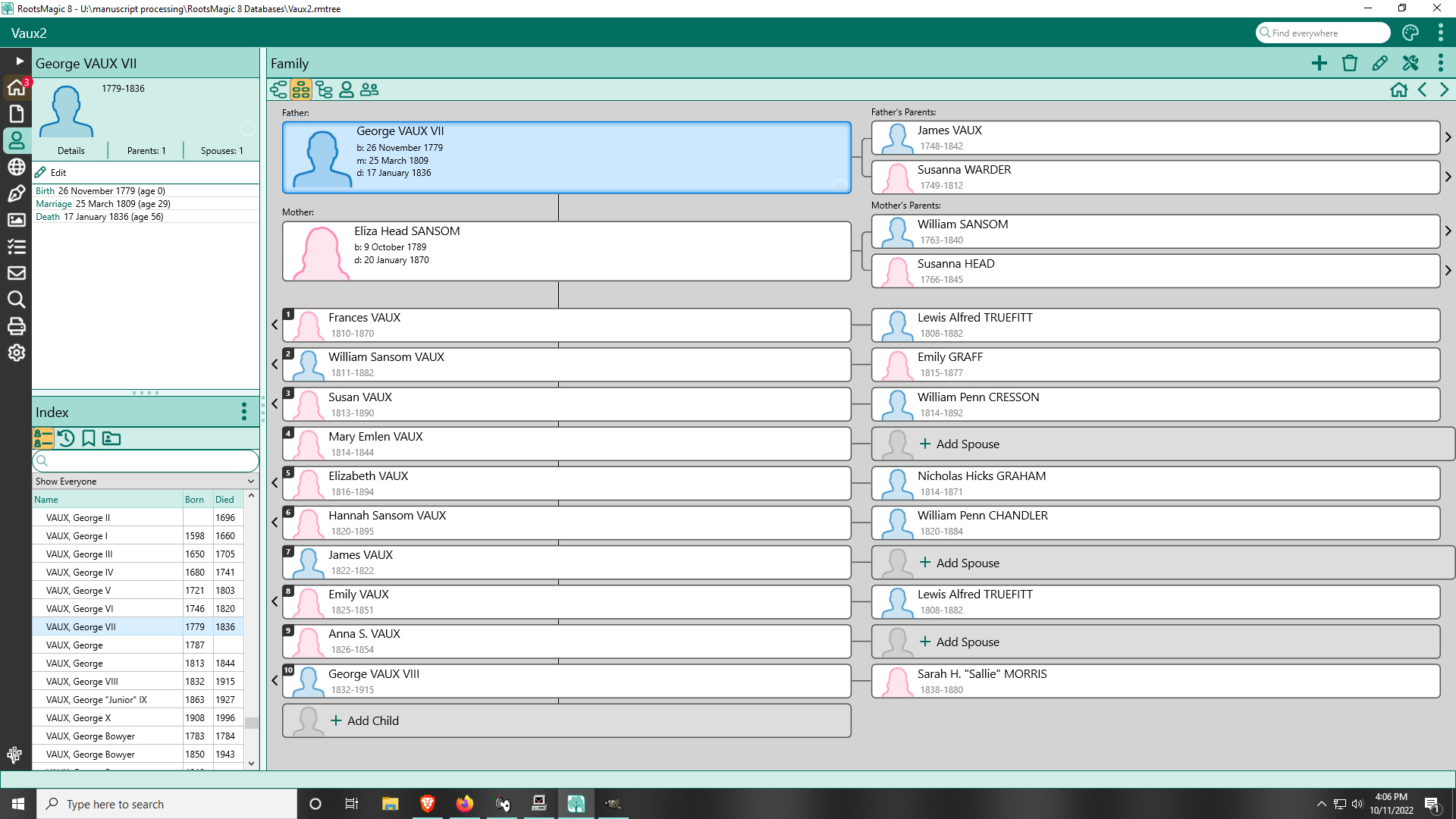Musings on Manuscripts — Excavating the Roots of a Family Collection
I wanted to share a tool with you that I have found invaluable in processing the Vaux Family Papers (Ms.Coll.73). The Vaux family is a prominent Philadelphia Quaker family who have roots to the founding of Pennsylvania and the United States, and are related to other prominent colonial families. The collection of their family papers at APS is an expansive one, consisting of 150+ linear feet of manuscript materials spanning 1690-1996. It includes correspondence, essays, business records, legal records, family records, printed materials, graphics, and bound volumes.
The correspondence in the collection consists of not just the many George Vauxes and their descendants, but also encompasses the extended family of Warders, Sansoms, Heads, Graffs, Morrises, Cressons, and Mayberrys. At APS, we traditionally process older manuscript collections (that is, 19th-century materials and earlier) at the item level. This means that each letter is described and placed in its own folder. Because of this, it is important to correctly identify and describe each letter’s correspondent and recipient.

This can be complicated in a family collection where the same names often repeat themselves from one generation to the next, and within generations. There are many Georges, Jameses, Williams, Elizabeths, and Marys, among other names, in the collection. There are at least ten different George Vauxes alone in the family! With such a collection, including the birth and death dates in the description is helpful in differentiating the individuals, as is understanding the relational nature between family members. My supervisor and colleague, Val Lutz, Assistant Librarian and Head of Manuscripts Processing, who is, coincidentally, the President of the Genealogical Society of Pennsylvania, recommended a tool to me that has proved invaluable in processing the collection and in recording this important information: the genealogical software program, RootsMagic.

RootsMagic is a powerful tool that allows users to build a database of family names and record the vital information for each name—dates, locations, and relationships. It gives users the ability to construct family trees and print out ancestral charts and reports. It even allows a place to document the research sources used to compile the information. It is intuitive and easy to use, and comes in a basic, free version and an expanded pay version. To date, I have populated the Vaux family RootsMagic database with 4,324 names from ten different generations, recording name, birthdate, death date, marriage date, and relation for each record. I have used sources from the collection itself (a few of the George Vauxes were amateur genealogists), printed genealogies (in particular, Colonial Families of Philadelphia), historical sources such as the Philadelphia City Directory, and websites like Ancestry.com and Find A Grave to assist me in building the database.

The processing of the collection has been a long-running saga and has been interrupted by multiple factors: the Covid pandemic, family events, and other work assignments and responsibilities. To date, over 18,000 items from the collection have been processed and described. The RootsMagic database in particular has greatly helped me to pick up where I have left off in this stop-start process. It has been vitally useful in enabling me to identify individuals in the collection and to better understand their relational nature over multiple generations. Archivists aren’t always familiar with genealogical tools, and may miss out on some helpful processing aids. I can’t recommend RootsMagic highly enough to budding archivists, historians, and genealogists alike.


